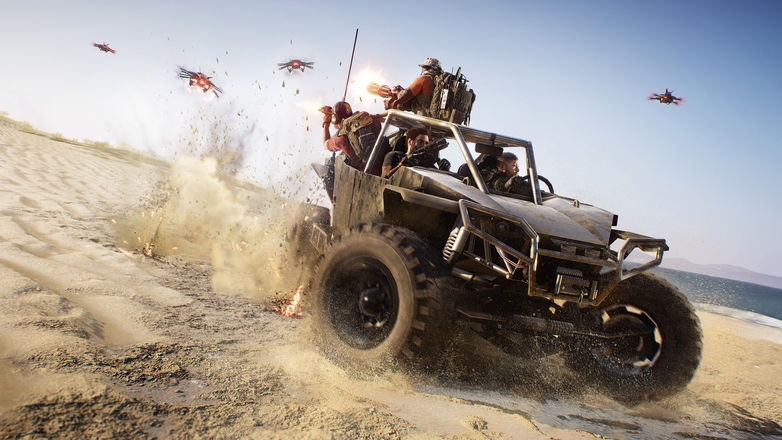Ubisoft CEO admits they blew it with Breakpoint
'We were wrong in our assumptions.'

Yesterday was a big day for Ubisoft, and not at all a good one. The publisher announced delays to multiple big games, including Watch Dogs Legion, Rainbow Six Quaratine, and Gods and Monsters, which collectively took a big toll on Ubisoft's bottom line for the fiscal year.
Another contributing factor to Ubi's financial woes, and part of the reason for all the delays, was a thundering failure of Ghost Recon Breakpoint, and "to a lesser extent," The Division 2. Ubisoft didn't provide numbers, but said that it had made a "sharp downward revision" in the revenues expected from both games, which it blamed on a failure to differentiate Breakpoint from its predecessor, an overall lack of interest in sequels to live games, and excess bugs for the game's failure.
In a post-announcement conference call, Ubisoft CEO Yves Guillemot made the point that while Breakpoint will naturally be compared to Ghost Recon Wildlands, it's not a fair comparison because Wildlands has had years to get its act together. That's a lesson that applies to live games across the board: Sequels to live games cannot be handled in the same way as they are with standard, start-to-finish games.
"We continue to learn and adapt to the realities of live operations, and what we just experienced is that it is more difficult to create interest for a sequel of a successful live multiplayer game when the past iteration has benefited from years of optimization and improvements," Guillemot said. "With so many learnings and built-in confidence from our teams, we wrongly believed that after a 30-36 month gap between releases, players would be ready to enjoy new adventures of our live games. In the end it proved too short a time frame."
But he also acknowledged that Breakpoint blew it fair and square in multiple ways, too. Changes to basic elements of gameplay is one issue in particular: Ubisoft has generally had great success evolving its various franchises over the years, but "some of those changes of formula can be unsettling and require perfect implementation in order to offer an optimal experience," Guillemot said.
"This has not been the case with Ghost Recon Breakpoint. The changes we brought to its core gameplay have generated a very negative reaction … While the change of formula has been very well received by some players, as average daily playtime per player is very strong at more than three hours, it has also been rejected by an important portion of the community."
Interestingly, he also admitted that Ubisoft rolled the dice a bit by releasing Breakpoint while it was still suffering from some known technical issues. They weren't "blockers," Guillemot said, and Ubisoft was confident that what it perceived to be "small flaws" were easily outweighed by the overall quality of the co-op campaign—which is why it was so surprised when that turned out not to be the case.
Keep up to date with the most important stories and the best deals, as picked by the PC Gamer team.
"What we see now is that, with the response from players, we were wrong in our assumptions," Guillemot said.
Watch Dogs Legion, Rainbow Six Quarantine, and Gods and Monsters are now all expected to arrive sometime in Q2/Q3 of Ubisoft's next fiscal year, which puts them between July 1 and December 31 of 2020. Beyond that, it sounds like Ubisoft's experience with Breakpoint means we'll be waiting longer than usual for its next round of live games.
"We need to make sure that for live multiplayer games, there is sufficient time between each iteration received to build strong anticipation and momentum," Guillemot said. "We need to make sure that all our upcoming productions benefit from enough development time. This has been our strategy for many years, and it has proven very effective. This situation is telling us we can't make exceptions."

Andy has been gaming on PCs from the very beginning, starting as a youngster with text adventures and primitive action games on a cassette-based TRS80. From there he graduated to the glory days of Sierra Online adventures and Microprose sims, ran a local BBS, learned how to build PCs, and developed a longstanding love of RPGs, immersive sims, and shooters. He began writing videogame news in 2007 for The Escapist and somehow managed to avoid getting fired until 2014, when he joined the storied ranks of PC Gamer. He covers all aspects of the industry, from new game announcements and patch notes to legal disputes, Twitch beefs, esports, and Henry Cavill. Lots of Henry Cavill.

